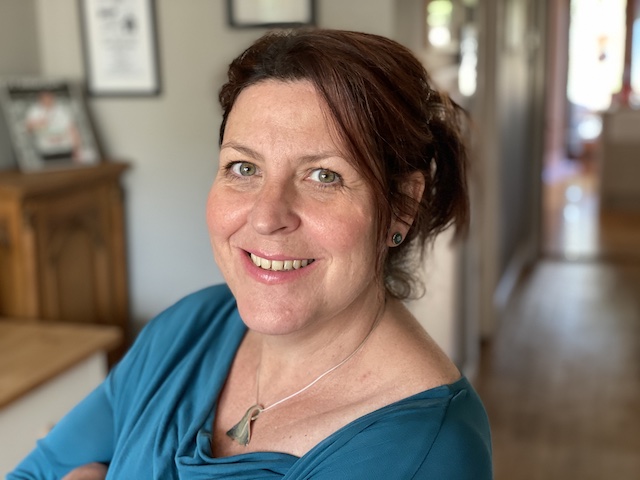
Energetic, warm and highly focused, it’s no surprise to hear that Nicky Rudd makes things happen. She whole-heartedly believes in the power of saying ‘yes’ to opportunities, and then working out how to make them successful.
“It’s a trait I believe many women have,” she says. “But often it’s overwhelmed by worrying about being caught out – that whole imposter syndrome problem. Most women are brilliant about adapting quickly to new situations, thinking on their feet and finding ways to do things. It’s just that the traditional working environment doesn’t always support them to do that.”
Having built a successful career in the communications sector, Nicky knows it’s empowering to step up to more responsibility or actively acquire new skills. “Saying ‘yes’ shouldn’t be something to be scared of,” she says. “In fact, I think that if more women did it, we’d see a real change in the way they feel about taking on roles and responsibilities earlier in their career. It gives you a huge amount of confidence – not just in your own abilities, but in your right to a place in that work environment, adding value to it.”
Nicky’s own career started in teaching. “I went into teaching because I needed a job, but I never intended to teach as a career for the long-term. As I entered my second year teaching, some of my colleagues encouraged me to apply for a more senior position, and I thought: ‘If I do that, I’ll never leave this profession’, so instead, I resigned at the end of the year and spent the summer looking for something else to do.
Attracted by a career in PR or advertising, Nicky took an initial two-week trial at a PR firm, which turned into a two-month unpaid internship. “That was the first time that I’d walked into a room and said a lot of things about what I could do!”, she laughs. “I came out thinking I must have sounded completely arrogant and big-headed: I’d told them I was good, and yes, I could do that thing and no I couldn’t do that thing, but I’d learn. The next day they called and asked me to start on Monday.”
Nicky had a similar experience when she applied to the BBC. She was told to come in and do two weeks’ work experience, but she was already working and couldn’t afford the time. She negotiated one day a week for however long it took to get the experience in. By the time her trial period was up, the BBC had offered her a job as a production manager.
“There’s a lot to be said about identifying what you want, looking in that space and grabbing the opportunities that come your way – what’s the worst that can happen?” says Nicky. “I’d really encourage women to be as open as possible to the chances they are given and not to be afraid of pushing back or dictating how you are able to do things. Just be less afraid!”
The flipside of the ‘yes’ coin, of course, is knowing when to say ‘no’. Nicky believes it’s a crucial skill in managing your mental health and work-life balance.
“Becoming a mum was a big thing for me,” Nicky reveals. “We share our childcare 50:50 – I never wanted to feel like I wasn’t in the room with my child because I was distracted by work, or that I wasn’t able to concentrate on work because of childcare responsibilities.
“I now can tell when I have taken too much on – I need time, fresh air and walks in my week. If I haven’t got that, I know I’ve committed to too much, and so I try to plan so that I don’t get to that point.
“I also have some really useful visual reminders in my office – posters like ‘I can’t do that – yet’. If you’re a ‘yes’ person, it can be very difficult to say no. So, it’s about pushing back a bit – giving yourself a bit of time, rather than over-committing.
Nicky says the other thing about saying ‘no’ is to make sure you can still offer help and support. Telling someone that you might not be the right person for the job is tempered by giving them the contact details of someone who is.
“It’s about being collaborative, not competitive. There seems to be a myth that lots of women don’t get on, but most of my collaborations are with women – they are good at nurturing people, situations, capabilities – all those good leadership and business skills. And of course, my contacts always say ‘yes’!”
 Nicky Rudd is a Chartered Marketer and a Fellow of the Chartered Institute of Marketing (CIM). She is the MD of Padua Communications, a content marketing and PR agency that she set up in 2009. Padua Communications has worked with clients in over 65 different industry sectors and has created over 2,200 pieces of content in the past decade.
Nicky Rudd is a Chartered Marketer and a Fellow of the Chartered Institute of Marketing (CIM). She is the MD of Padua Communications, a content marketing and PR agency that she set up in 2009. Padua Communications has worked with clients in over 65 different industry sectors and has created over 2,200 pieces of content in the past decade.
With a background in tech PR and experience of working in consumer and B2B, Nicky has stacks of experience working with clients in a wide range of markets creating PR and content campaigns. She has also worked with a number of companies undergoing change or adapting to different working environments and loves working with businesses, helping them to tell their stories for short-term sales and long-term brand awareness.
As well as over 25 years’ agency experience, Nicky has worked in TV and radio production at The Media Trust and BBC Radio Northampton, where she also presented. Prior to that, she started her career as a secondary school English and Media Studies teacher.
A regular facilitator and speaker on business communications, marketing and PR, Nicky drinks an inordinate amount of tea and was very nearly the voice of the speaking clock.
